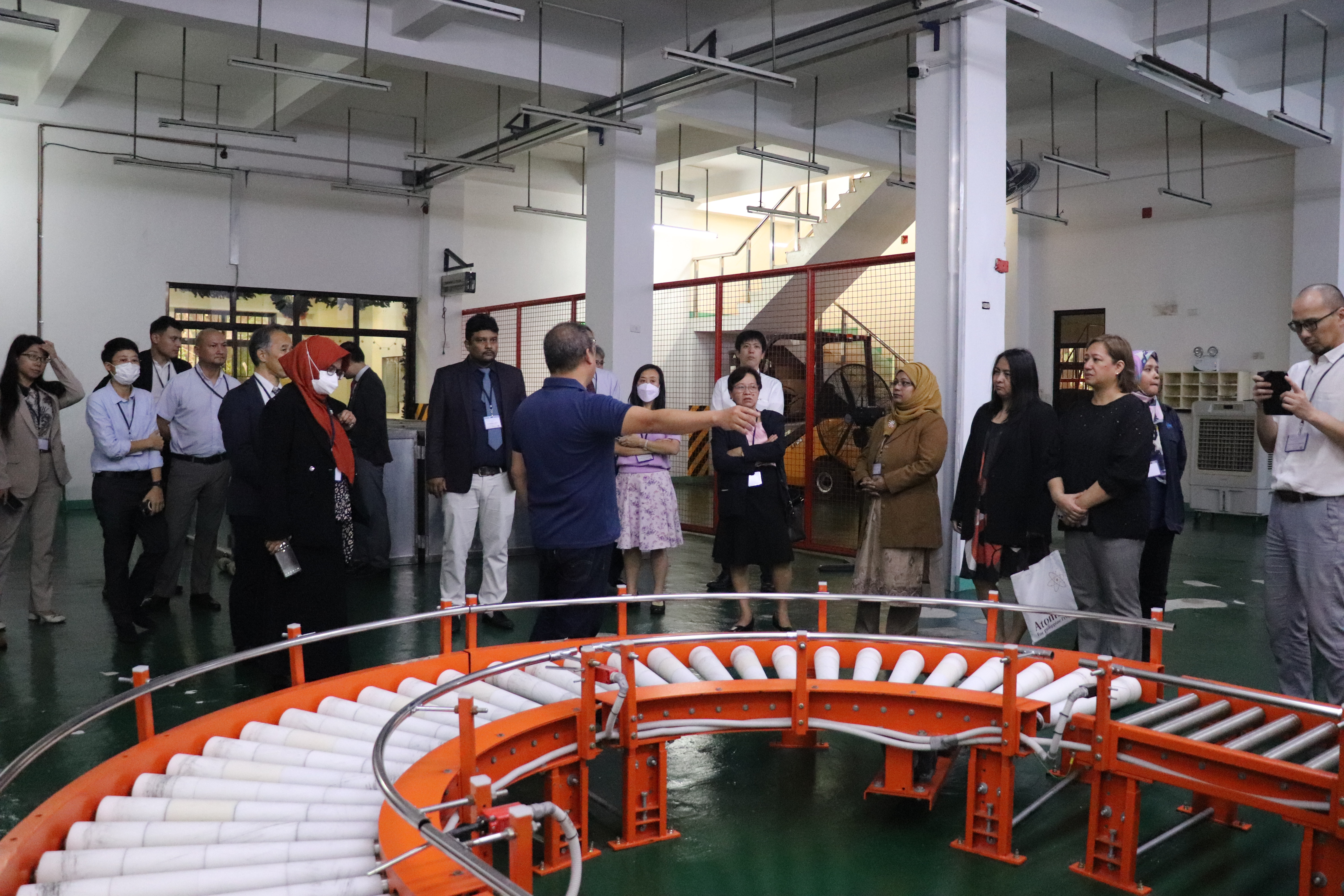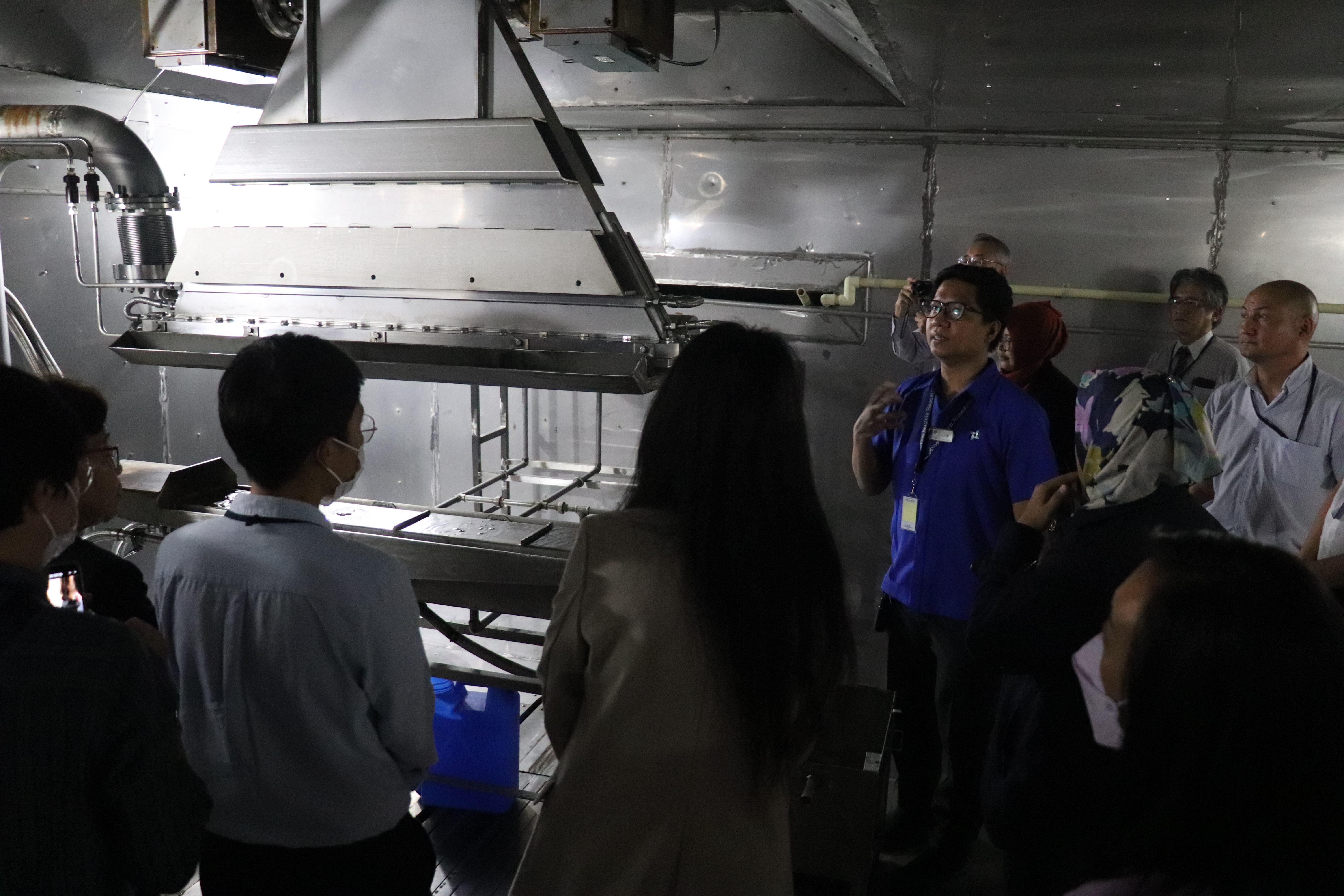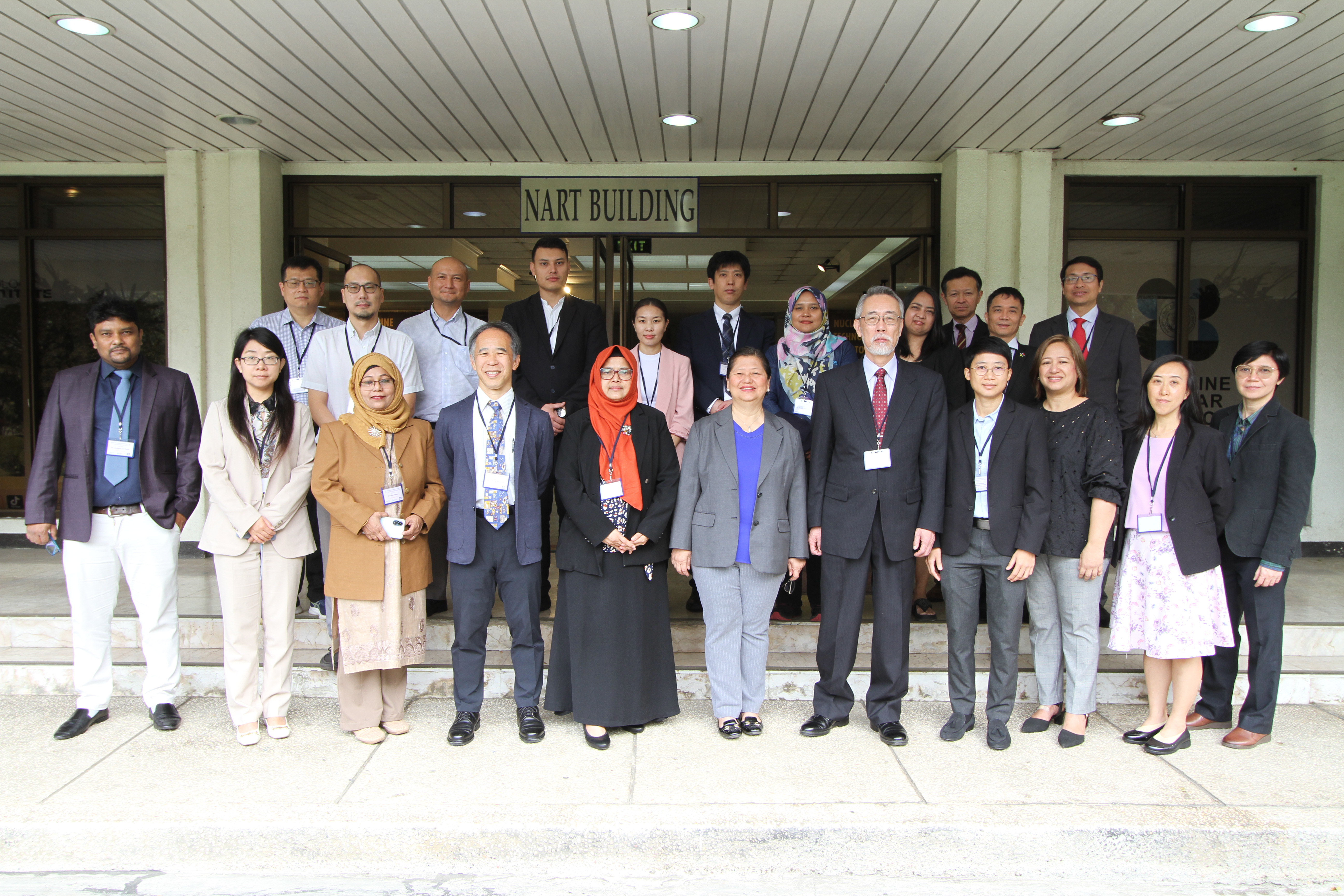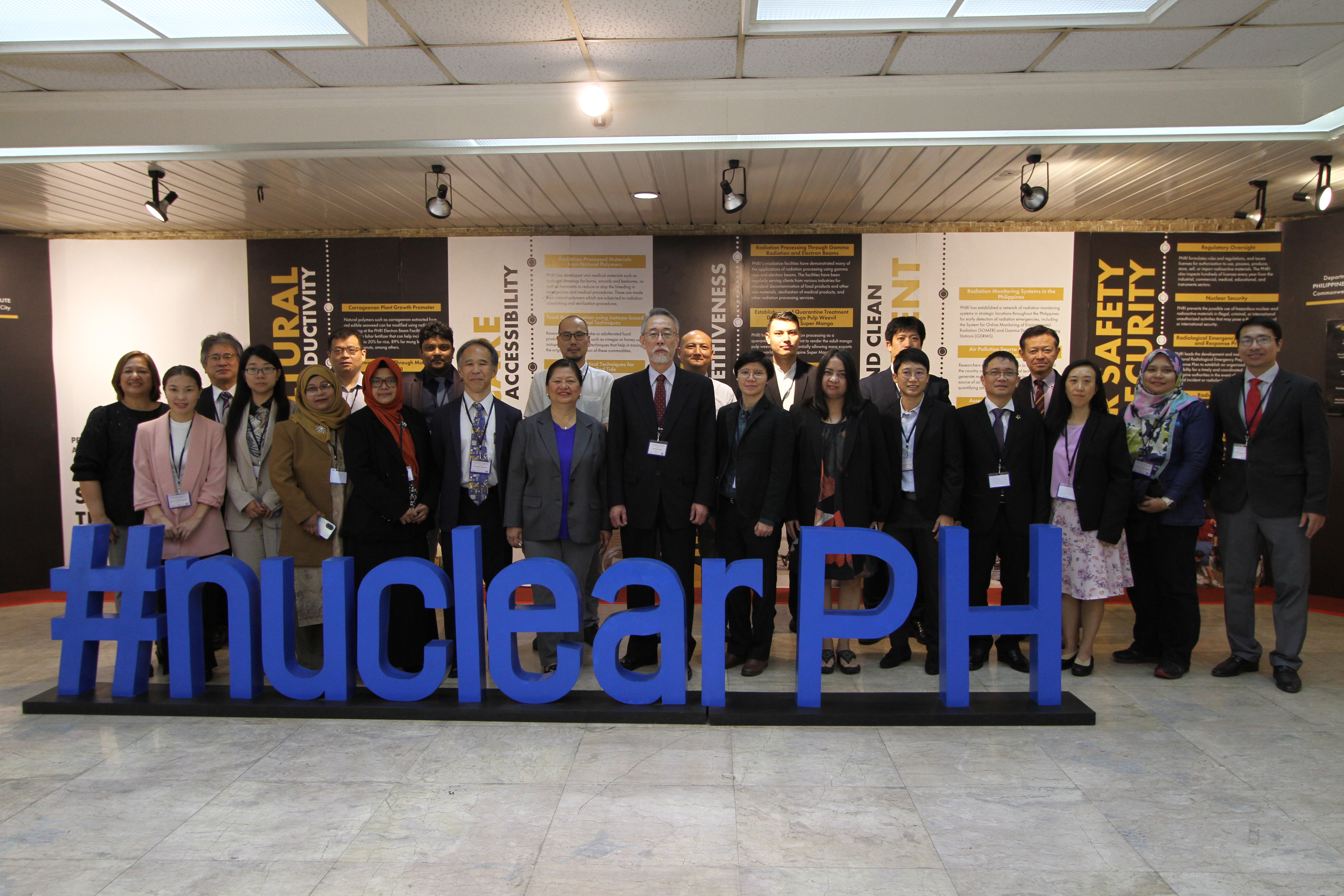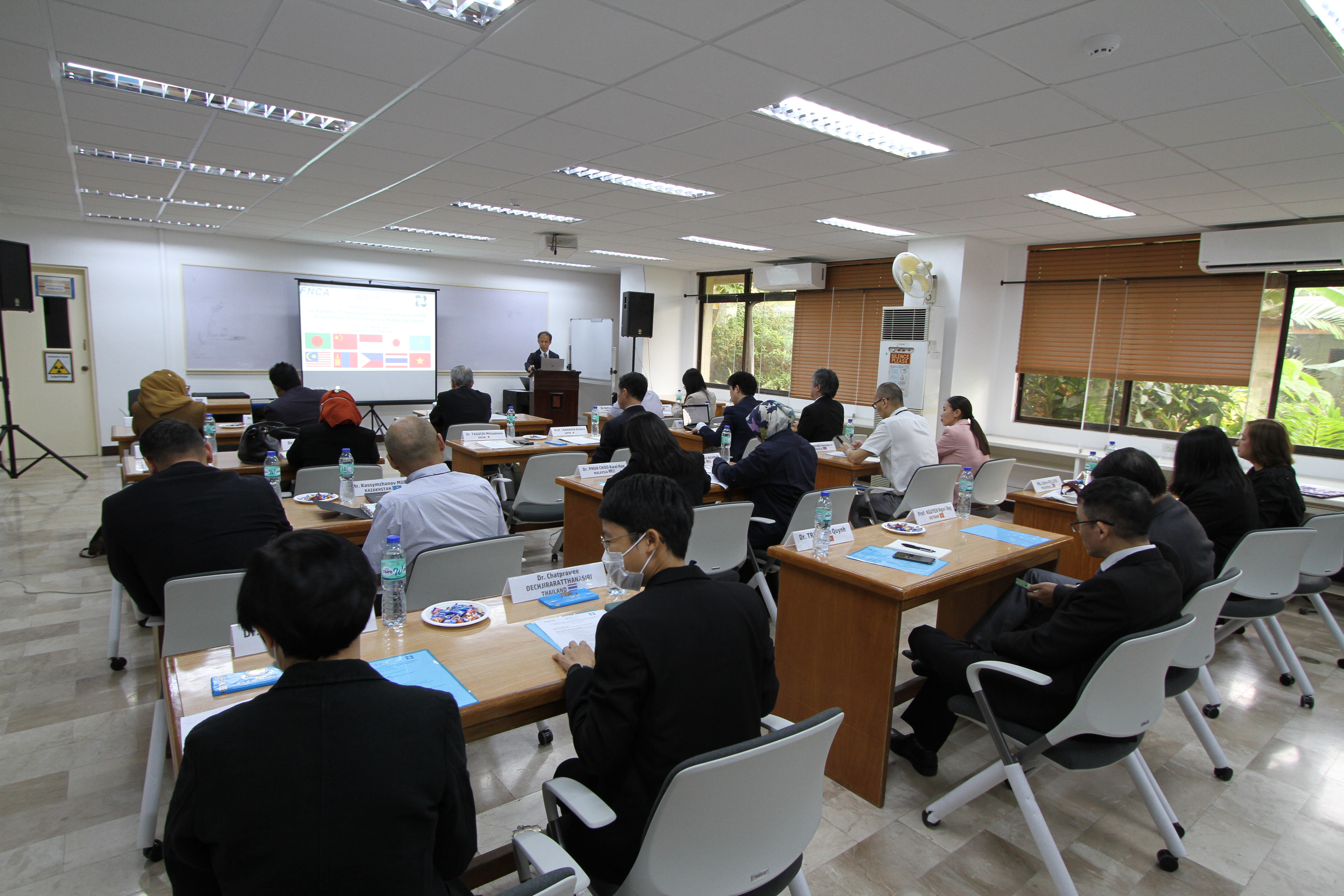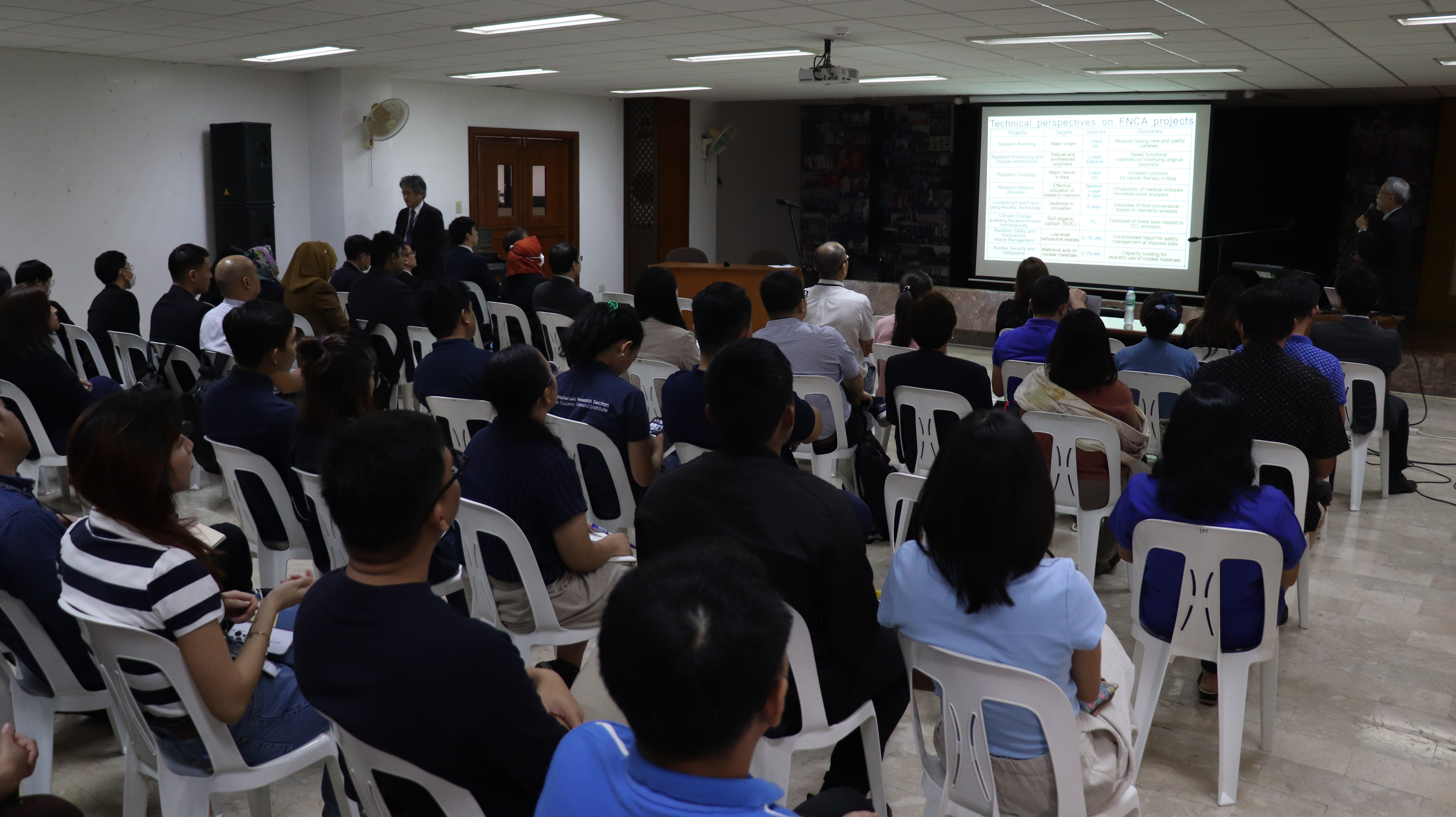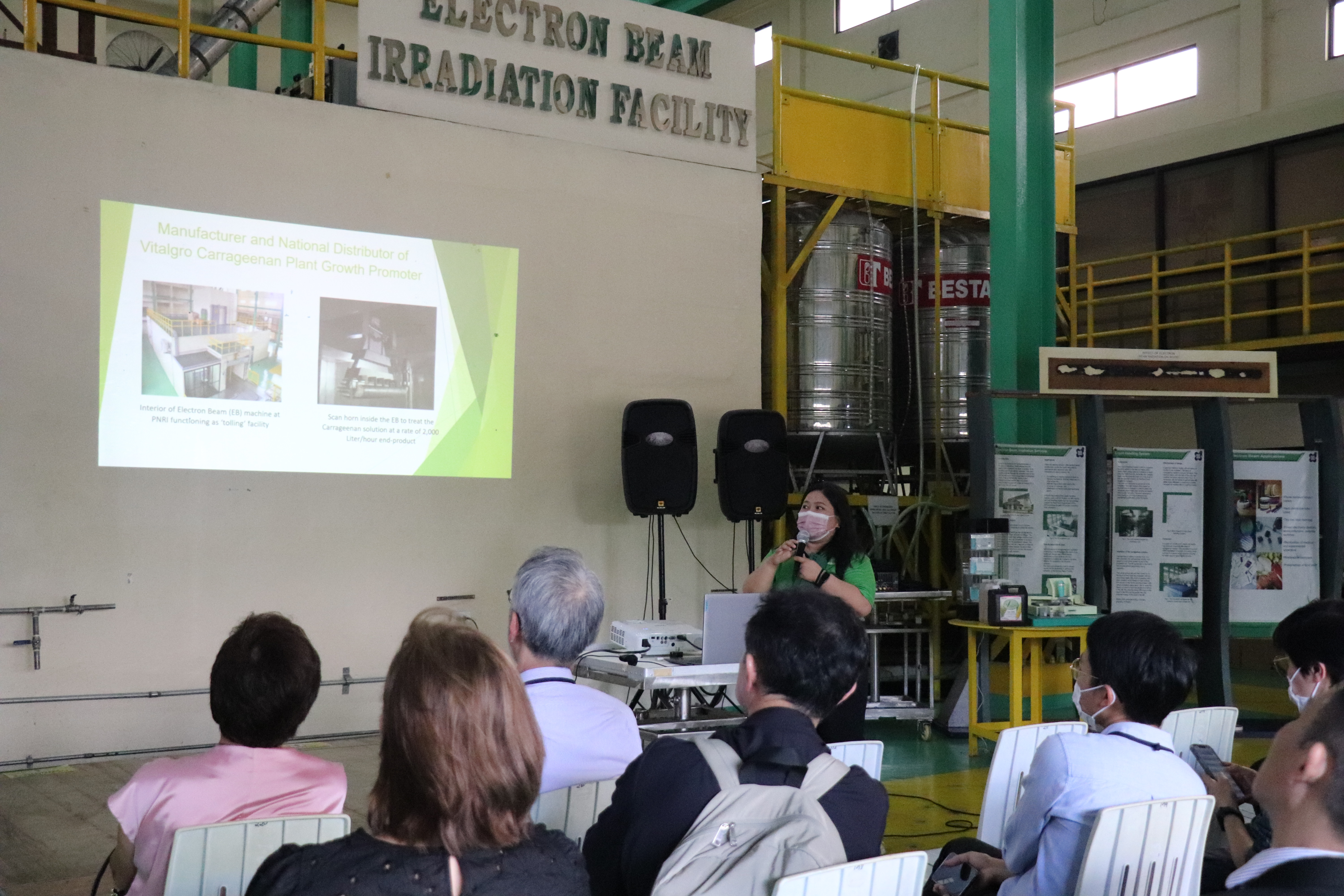
Radiation technology experts representing countries in the Asia-Pacific region on a tour of DOST-PNRI’s various irradiation facilities – the reinaugurated PHILGamma (above) and the Electron Beam Facility (below)
DOST spearheads training on radiation processing, polymer tech
Bringing together the collective expertise of participating Asian countries in a wide variety of radiation technology applications, the Department of Science and Technology – Philippine Nuclear Research Institute (DOST-PNRI) hosted the 2023 Forum for Nuclear Cooperation in Asia (FNCA) from January 22 to 26, 2024 in Quezon City.
In the training entitled Workshop on Radiation Processing and Polymer Modification for Agricultural, Environmental and Medical Applications, the FNCA was represented by various radiation processing researchers and experts from Bangladesh, China, Indonesia, Japan, Kazakhstan, Malaysia, Mongolia, Thailand, Vietnam and the Philippines.
The workshop opened at the PNRI compound in Diliman with an open seminar on radiation processing technologies, followed by further workshop sessions at the Hop Inn Hotel, Quezon City.
Speakers and scientists from FNCA and PNRI, as well as representatives from government research institutions and the private sector presented on a wide range of radiation applications, which the FNCA has supported for decades.
Among the innovations discussed are polymer-based products and biofertilizers which can help increase the yield, longevity, and resistance of various crops to the effects of climate change, helping immensely in agricultural productivity which is vital to the economy and food security of Asian countries.
In industry, experts also explained how raw materials and finished products are exposed to either gamma radiation or electron beams to decontaminate and sterilize goods and improve the quality of exports.
Researchers also tackled on polymer modification using radiation, which opens the door for new products, such as wound dressings cell cultures and hemostats for medical applications, while in the environmental field, radiation grafting and degradation is also being used to develop products for absorbing toxic or harmful metals, and wastewater treatment, to name a few.
“Indeed, radiation has long since been a boon to various sectors, particularly in the agricultural, environmental, and medical fields,” said PNRI Career Scientist Dr. Lucille Abad, who welcomed the participants during the opening.
“How we can take these applications to the next level, and how to harness, and maximize the same for the benefit of our region, is the crux of today’s workshop. We are proud to showcase the latest applications in radiation processing and polymer applications, and are also very excited to learn more from our colleagues and representatives.”
The participants also toured the various irradiation facilities of PNRI, including the Electron Beam Irradiation Facility, the recently reinaugurated PHILGamma, the Institute’s longstanding Cobalt-60 Multipurpose Irradiation Facility, as well as the Ob-Servo Sanguis and Gammacell-220 irradiators for small volumes of samples.
The FNCA is a cooperation framework led by Japan at the turn of the millennium for the peaceful applications of nuclear technology.
Among PNRI’s technologies which received support from the cooperative framework through the years is the Carrageenan Plant Growth Promoter – winner of the 2017 FNCA Excellent Research Team of the Year Award, among others – that can increase the yield of rice and other food crops, and more recently, the radiation-processed hemostats which can reduce or stop the bleeding in medical or emergency settings.


























